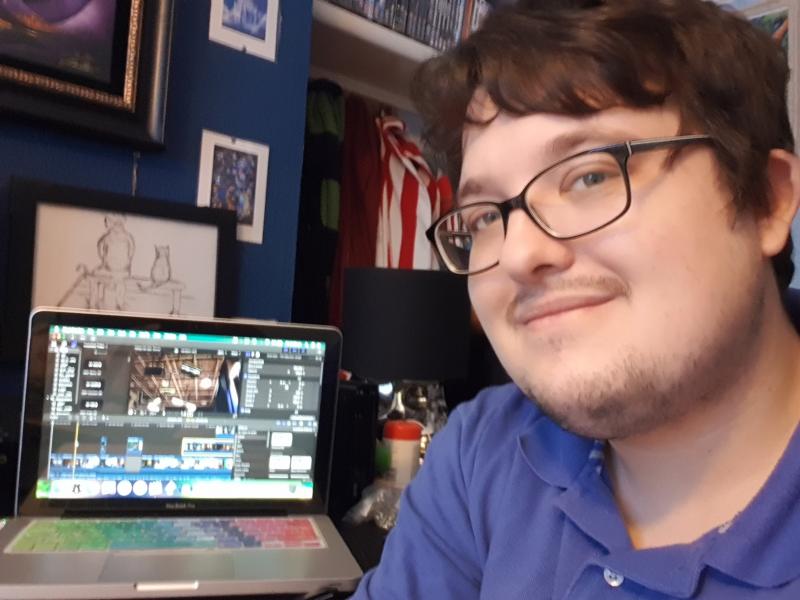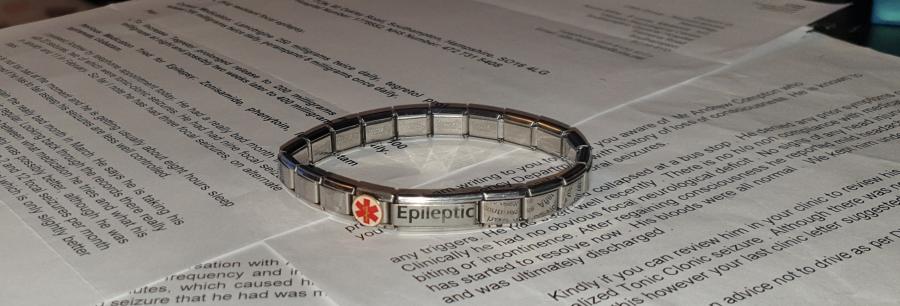Blog Post: Andrew on Education

My case of epilepsy originated through an infrequent series of auras in late 2012, worsening gradually across 2013 and ultimately leading to my first tonic clonic fit and subsequent diagnosis in March 2014, aged 19. Despite the usage of numerous medications since, I still suffer between 10 and 15 absence seizures per month, and so full seizure prevention continues to be a major struggle.
During the summer of 2019, my job came under serious risk for multiple reasons; the subsequent stress linked to such news as well as a major increase in seizures and worsening side effects overwhelmed me to the point where I thoughtlessly attempted suicide through overdose. It remains one of my biggest regrets, but thankfully yielded no lasting consequences following a brief stay within intensive care. With my job pretty much long gone at this point, my mother suggested university as a new path forward; I was skeptical over the matter, as I had left my previous university after just a few months back in 2013. I was relatively unhappy during my time there and felt that it was not advancing my career prospects in any way.
Film Production has always been a major hobby and future career ambition, albeit one I had slowly drifted away from over the years. I soon agreed with my mother’s suggestions and decided to give university a second try, starting a new Film Production degree in September 2019. I chose a university of suitable quality near my home to make things easier, considering the sporadic and unpredictable nature of my seizure patterns at this time. From the beginning I clearly illustrated my health concerns to the university's medical squad, both through my application and during initial welcome weeks. As with most universities I viewed, they would follow routine treatment methods but still welcome any further input and advice from the patients themselves.
- I insisted from the very beginning that immediate assistance was always required during a tonic clonic fit, and for an ambulance to be called without delay if the fit does not end after a few minutes. It was to be taken with great seriousness, and I would certainly advise anyone in a similar situation to avoid sugar coating the matter for the sake of formality.
- It is crucial to detail the worst possible outcomes that a seizure can lead to, and ensure dangerous conditions like status epilepticus (potentially fatal) are well understood by medics as well as lecturers and any fellow students that you may have regular contact with. You won’t get a chance to advise people of what steps to take when having a seizure, so they need to understand well enough beforehand.
- Even if the medical teams you speak to are very knowledgeable over the matter, it is still ideal to detail even the lesser known consequences epilepsy can carry to avoid any seemingly minor yet potentially dangerous oversights. Patients should only be touched during a tonic clonic fit if being moved to a safe position, for instance. You should hope for the best, but still prepare for the worst.
- The kindest and most understanding lecturers still can’t bolster your final grades just because of your health troubles, and so you can’t be afraid to ask for help when you need it the most. Don’t let your disability ruin the potentially prosperous future that university can guide you to.
Ensuring the risks of epilepsy and the structures of a seizure were all perfectly understood and that correct medical procedures would be followed has allowed me to devote to university with full confidence and without intrusive worrying about having seizures on campus. I have suffered seizures on my way to university and during group work off campus, but this has not negatively impacted my grades; in fact, they remain among the highest in the class, especially for group assignments due to the wonderful and equally talented people I have met and worked with. Everyone has been very understanding of the risks my condition carries; I had no issue telling fellow classmates and have never been negatively judged over the matter. Don’t brand and single yourself out as an epileptic; your actions will paint the picture of who you are, not the disability itself. That’s how it’s always been for me.

